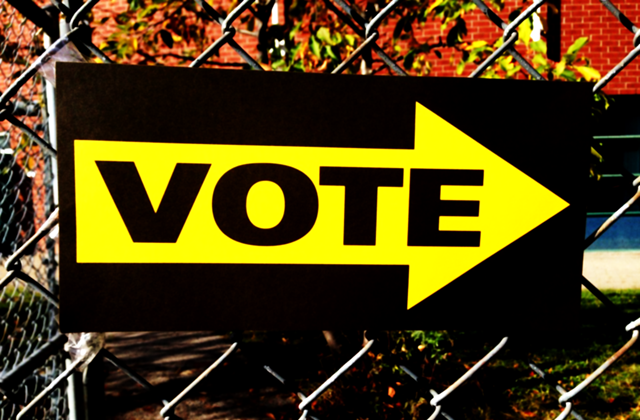Bitcoins in Brief
Bitcoins are a virtual currency, created approximately four years ago. They are exchanged digitally via encrypted codes over the internet. They represent a decentralised and experimental currency that is not reliant upon governments. To buy Bitcoins, the payments must be irreversible; and exchanges are made anonymously.
The supply of Bitcoins is effectively fixed, with people mining them electronically by having their computer decrypt codes. This can only continue until the year 2040, and there is a self-imposed limit of 21 million on the number of Bitcoins that will ever exist.
Money and Economics 101
The basics of what defines any money, often takes into account three key features that are to be satisfied. Foremost money must be a medium of exchange, in that it can buy goods and services. Money must be a unit of account, in that it represents a record of what is owed or borrowed and can be lent out and also used to pay debts accordingly. Money also represents a store of value or wealth.
Additionally, it’s usually desirable that money is also portable, durable, and divisible. These features serve to facilitate the ease with which a type of money can be used. Beyond which, money also solves the double coincidence of wants. Meaning that in a barter system two parties must both want what each other has to offer before an exchange can occur.
Thus money can be effectively be anything, provided that it is well accepted by people. For this to happen, then it will have satisfied the criteria above. There are commodity currencies, where some physical good is used as money. Gold being the commonly cited example. Although such currencies have generally been replaced by the slightly more complicated fiat currencies. These are paper (or the like) and now electronic currencies. Tokens which have no value, except for the fact that they are accepted as money. Fiat currencies, are effectively a guarantee that the currency is backed by the standing of the government and is honoured accordingly, so people use it as money. Add to this, that a given fiat currency is therefore also officially used to pay taxes to the government. This forces, and enforces, the money’s use amongst the people.
Inflation and Deflation
When considering any currency, it’s irrelevant to speak of it as appreciating or depreciating without putting it into context. The rise or fall in price, must be put in relative terms of either another (foreign) currency. For example, the Japanese Yen fell against the US Dollar. Or put in terms of purchasing power. Such as one euro could purchase one croissant in 2011 and now it costs three euros to buy an equivalent croissant (or another similar statement would be that the euro can now buy less of another currency).
Thus for Bitcoins to be appreciating in value, then technically it must be that Bitcoins can buy more goods and services for the same unit of account in Bitcoin. Or that Bitcoins can now buy more of other currencies. (The corollary also holds here, that another unit of currency can now buy less Bitcoins; or that it takes more units of a currency to buy the same amount of Bitcoins.)
Regardless of economic persuasion, it’s not disputed that inflation is considered always and everywhere a monetary phenomenon. Inflation represents an increase in the supply of money. Persistent rising prices are the consequence of this. Inflation can be viewed as an erosion of the value of money. Meaning that it requires more of the money to then buy the same equivalent goods or services at a later date. The value of the money is falling. Simplistically, that a dollar today is worth more than a dollar tomorrow. (There is also the notion of the time value of money here.) This is often the ‘normal’ order of things. Mildly inflationary conditions have been the target of central banks for decades now. More recent use of unconventional measures and monetary policies to increase liquidity and the money supply are often called “printing money” by commentators, and are viewed as being ultimately inflationary. Not to mention debasing currencies and domestically eroding savers’ wealth (the more complicated notion of the current “currency wars” is this in international terms of foreign currencies relative to one another). In an inflationary environment, saving money alone represents a loss of wealth. The saved monies must earn in interest at least the rate of inflation, if the purchasing power and wealth is to be maintained.
Alternatively, if the value of money is rising, then it is undergoing deflation. Again, simplistically, it means that a dollar today is worth less than a dollar tomorrow. This kind of monetary and economic environment favours saving and deferring spending because the money will be able to purchase more in the future. It can do this even without earning a positive interest rate (since the rate of inflation is not positive). The difficulty here is, whilst the resultant effect of inflation is clear and largely uniform, deflation is often significantly more complicated and can manifest in multiple ways depending on both domestic and international conditions.
Money Evolved?
As Bitcoins have become more expensive in terms of other fiat currencies, it could be viewed that other currencies are suffering from increasing levels of inflation. In relative terms, that Bitcoins are experiencing deflation. Yet the situation with Bitcoin does not lend itself quite so simply to this.
The question is whether Bitcoins are money, which given the definition of money they appear to be so, provided they can be continued to be used as medium of exchange. However, Bitcoins are very much an experiment. They can be viewed as perhaps part of the evolution of money. From forms of physical commodities, to paper and electronic fiat currencies. Then, maybe, to a decentralised international currency. Finite in supply, not reliant on any government, and that can’t be influenced by a central bank. (This differs from the currency union of the euro.)
In being an experiment, there is also the element of speculation. Not that people truly want to use Bitcoins as a medium of exchange. Rather it is something – perhaps a curio – that is appreciating in value because other people want it. Or, to put it another way, in this context Bitcoins may also be considered like a form of share, or internet stock. There are no underlying earnings or dividends to be paid to the owner of a Bitcoin (interest is also highly unlikely). Rather the only way to make a profit from Bitcoins will be to either go long, and buy low and sell high; or go short, and sell high and buy back low. The latter seems unlikely (borrowing Bitcoins would be extremely problematic). Although it could be possible, were the proper exchange and market mechanisms in place to trade Bitcoins. Yet this necessarily requires viewing Bitcoins as a type of electronic commodity to be bought and sold, and not purely as a medium of exchange. Although these need not be mutually exclusive of course.
Cash In, Cash Out
If viewing Bitcoins as a trading vehicle, then witnessing a parabolic path in asset prices, is usually the time that some people get greedy and buy in late, whereas others begin to get nervous and may view it as a bubble. Financial bubbles are a tricky matter, and a subject of continued to debate as to whether they actually exist. Some argue that they can only be indentified after the bubble has burst; and that there was likely no underlying economic value to have caused the prices to rise, only expectations of higher future prices.
This is what makes Bitcoin such a curious case. Even if hoping for higher prices of Bitcoins, unless for numismatic-like pursuits, the holder would still ultimately want to use Bitcoins as a medium of exchange and convert them into something else. Preferably profiting by doing so.
If there is sufficient distrust of the current monetary system, then the anonymous and unrestricted nature of Bitcoins may be appealing. Because they’re electronic, they are more readily portable than gold. Bitcoins may also be far more difficult for a government to confiscate, as they have been known to do with gold in the past. Because the supply of Bitcoins is also fixed, it should be free from political meddling and central bankers. However, it must be noted that the limit of 21 million Bitcoins, is self-imposed. Many governments have placed self-imposed limits on themselves, only to revise them as they see fit at a later date. Debating which is trusted more, the government or private enterprise, usually makes for some interesting discussion.
Additionally, the confiscation of deposits within banks by governments, such as in Cypress has demonstrated, is not doing much to allay the fears of those concerned with the financial and banking system as it currently exists.
Regardless of their nature as a currency, Bitcoins are viewed as empirically having volatile prices. Such volatility is often considered as a negative quality for a currency as a form of money; yet as a positive quality if trading that currency. In the space of this week the price of Bitcoins have dropped from near $US260 to $US120, with considerable volatility in between. If Bitcoin is a currency, this volatility has represented both considerable deflation and inflation, the equivalent of a currency crisis.
Perhaps Bitcoins serve as part of the mantra of much finance, and could reasonably be another way to diversify. Vires in numeris. Moving beyond physical commodity currencies like gold and political currencies like the Yuan, into a finite mathematical currency. Of course placing all your wealth in an experimental currency may not be the wisest decision. Especially if it ceases to function as a medium of exchange. It is not financial advice by any means, but only risk money that you are comfortable to lose.
To Bitcoin, or Not To Bitcoin?
None of the situations surrounding Bitcoins give a clear answer to how things may develop.
After the recent falls in prices, some view Bitcoins as a bursting bubble. Similar remarks were made in the past about Google.
That most currencies these days exist only electronically is a moot point. People seem to have few qualms about the almost-cashless society, and paying with plastic credit cards and EFT. Again, the medium of exchange is the key here. This does of course require the solvency of a financial system that is mostly credit. Dissenters may favour stuffing their money under the mattress. There is something comforting to the tangibility of a chosen form of money. The 1s and os of Bitcoins, and their electronic exchanges and virtual wallets and purses, may not satisfy this requirement, helpful in establishing trust. (Note, although far less common, Bitcoins can be bought as representative physical tokens. The coins contain a private cryptographic key beneath a tamper-evident holographic sticker.)
There are legitimate security concerns here; Bitcoins are far from mainstream at this stage. Unscrupulous operators have duped Bitcoin owners. A financial system requires an element of trust to function. Strong ideological reasons exist for Bitcoins not to be regulated, yet this quite fairly requires each user to take full responsibility for using and storing their Bitcoins. This is laissez-faire, and you shall be left alone. Bitcoins theoretically cannot be taxed by governments. This does remain to be seen though; and that Bitcoins don’t discharge taxes may also in part remove one of the more ‘sophisticated’ and debatably stabilising functions of a money.
Furthermore, the point about tangibility is something that gold bugs are fond of pointing out. However, an owner of gold will presumably still want to use it in some way in the future. It may be rather philosophical, yet consider that even this requires gold serving the function of it being a medium of exchange. Outside of industrial and jewellery purposes, gold is much like digital binary code. Unless exchanged for something else, neither of these have the intrinsic life-sustaining values of other commodities like arable land or fresh drinkable water.
Vires In Numeris
What are your thoughts on Bitcoins; are they a currency or speculative ‘shares’ with no earnings? Perhaps like a Ponzi scheme, with the hope that the next buyer is a greater fool than you and willing to pay more?
Do Bitcoins represent a disruptive technology, a new electronic alternative to the current banking and payments system; or will they be remembered as yet another failed attempt at a currency not backed by a real commodity?
Feature Image Credits: Cory Doctorow; Gastev; Mike Cauldwell; Wikimedia Commons; Wikimedia Commons
 uthinki Considered Opinion?
uthinki Considered Opinion?



